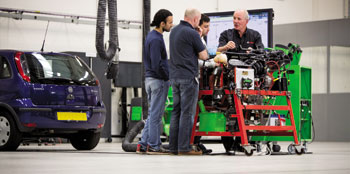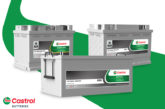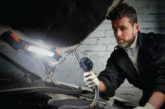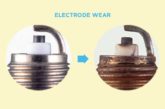
Steve Nash, IMI CEO, explains why the company will be using 2016 to press for licencing of technicians that work on electric vehicles.
IMI has been campaigning for a licence to practice in our industry for many years. The pace picked up in the last 18 months with politicians sitting up and taking notice of the issue around election time last year. This year we plan to pile on the pressure politically with a narrower focus around electric and hybrid vehicles. We believe there is both opportunity and expediency in this approach.
Alternative transport routes
There is widespread interest in political circles in alternative fuelled transport, with this years’ London mayor election fought on the back of a green agenda. Promoting electric vehicles and the charging infrastructure needed in the city will be a major talking point so we’ll aim to drive our views on the equally important skills issue into this debate.
The public are now talking about these vehicles seriously so they can easily be linked to votes in the future. Also, in practical terms our message is easier to deliver too. Unlike with petrol and diesel cars, it is clearly understood by lawmakers and the public that they know very little about the workings of electric and hybrid vehicles.
According to IMI research 53% of drivers planning to buy or lease a new car in the next two years are considering an electric or hybrid vehicle. This shows dramatic growth in demand for alternative fuelled vehicles from the 2% of overall car sales in 2014.
Green campaigners welcome the shift in focus, as do the major manufacturers already building hybrids. But for us it raises concerns about skills shortages and lack of government regulation covering electric and hybrid vehicle maintenance and repair.
 IMI awards around 95% of automotive qualifications and can report that 1,000 technicians are currently qualified to level 3 in electric vehicle and hybrid maintenance. Another 1,000 are currently taking the three year course. With around 170,000 technicians working in the industry and less than 2% properly qualified to work on these cars, a surge in demand for electric vehicles will lead to difficulties for owners and businesses.
IMI awards around 95% of automotive qualifications and can report that 1,000 technicians are currently qualified to level 3 in electric vehicle and hybrid maintenance. Another 1,000 are currently taking the three year course. With around 170,000 technicians working in the industry and less than 2% properly qualified to work on these cars, a surge in demand for electric vehicles will lead to difficulties for owners and businesses.
IMI is concerned that a future dearth of specialist EV skills will lead to unqualified staff attempting to work on vehicles that contain an electrical power three times greater than the average house. This could lead to potentially fatal consequences.
We know the independent sector will struggle to commit the necessary resources to up-skill their current workforce to meet this safety challenge, let alone invest heavily in the next generation of workers, without some guarantee of a return on their capital outlay.
A licence to practice for technicians working on the next generation of vehicles will give them the incentive they need, and reward early adopters in the race for skills.
We have planned a series of political and media events to deliver these messages to the public and to the government over the next twelve months. Our aim is to achieve the introduction of a licence to practice for technicians working on electric and hybrid vehicles in a similar way that the government regulates vehicle A/C maintenance and repair to protect the driving public.
As always, support from the trade and the trade press will be vital if we’re to achieve our aims.









